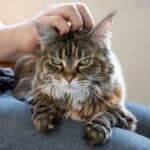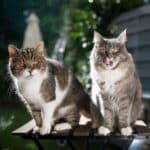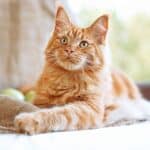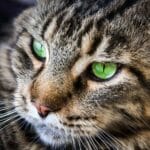Known for their friendly attitude and beautiful appearance, Maine Coons are the largest domestic cat breed in the world. Maine Coons grow to be about one meter long and up to 20 pounds in weight.
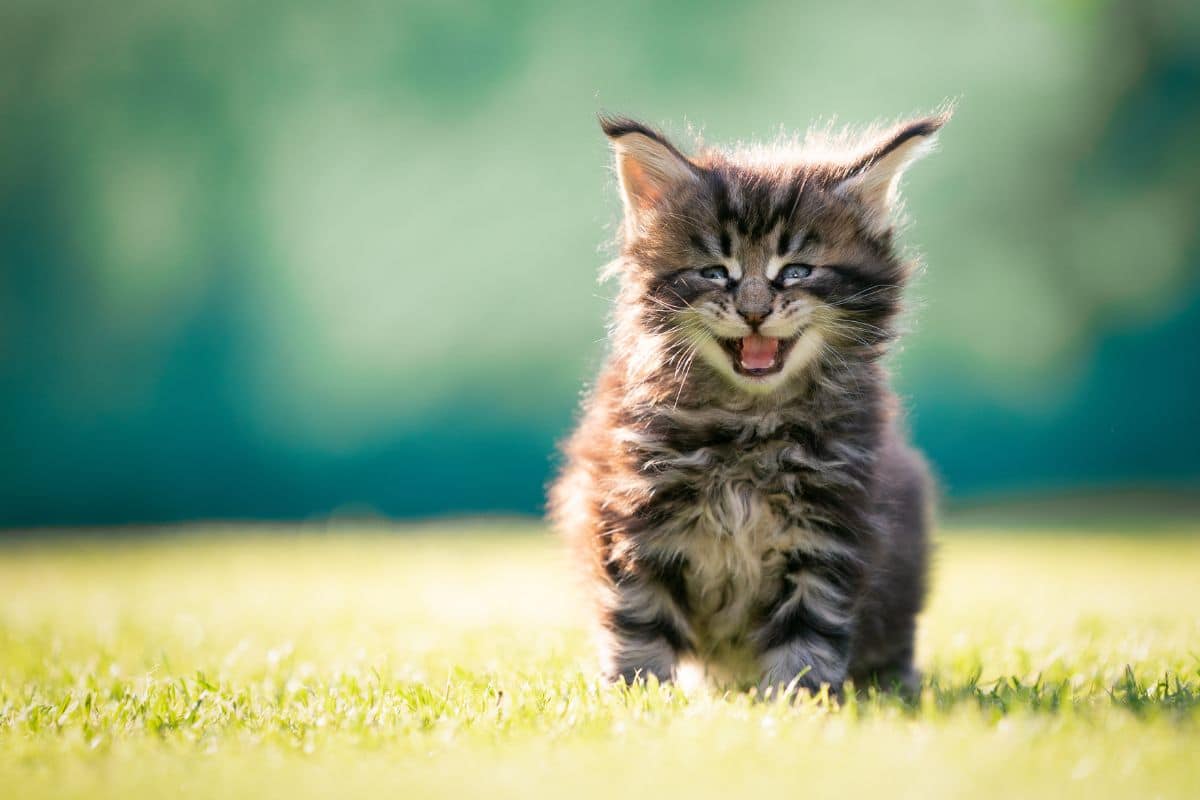
While the Maine Coon often chirps, chatters, and tweets, they can get quite noisy with loud and sometimes demanding meows. But why do they meow so much?
There are many reasons why your Maine Coon meows so much. Is it bedtime? Maybe they're bored. Maine Coons talk because they want to be part of the club; they must be involved in almost everything you do.
In this article, you'll learn why your Maine Coon meows often and what to do about it.
Jump to:
1. Boredom
Most people believe that cats of all breeds need water, food, and toys to keep them satisfied, and only when they are in the mood will they cuddle. On the contrary, cats are social creatures who need attention and stimulation to keep them from getting bored or depressed.
At first, you'll see them pace around your house and meow at everything they look at. Next, they'll get louder and even paw at you for attention.
Maine Coons are brilliant cats who need mental stimulation and attention - just like dogs - although they want attention when they want it, not when you want to give it. Next time you see this behavior, give your cat some scratches, brush them, and pull out a toy so they can interact with you.
2. Hungry/Thirsty
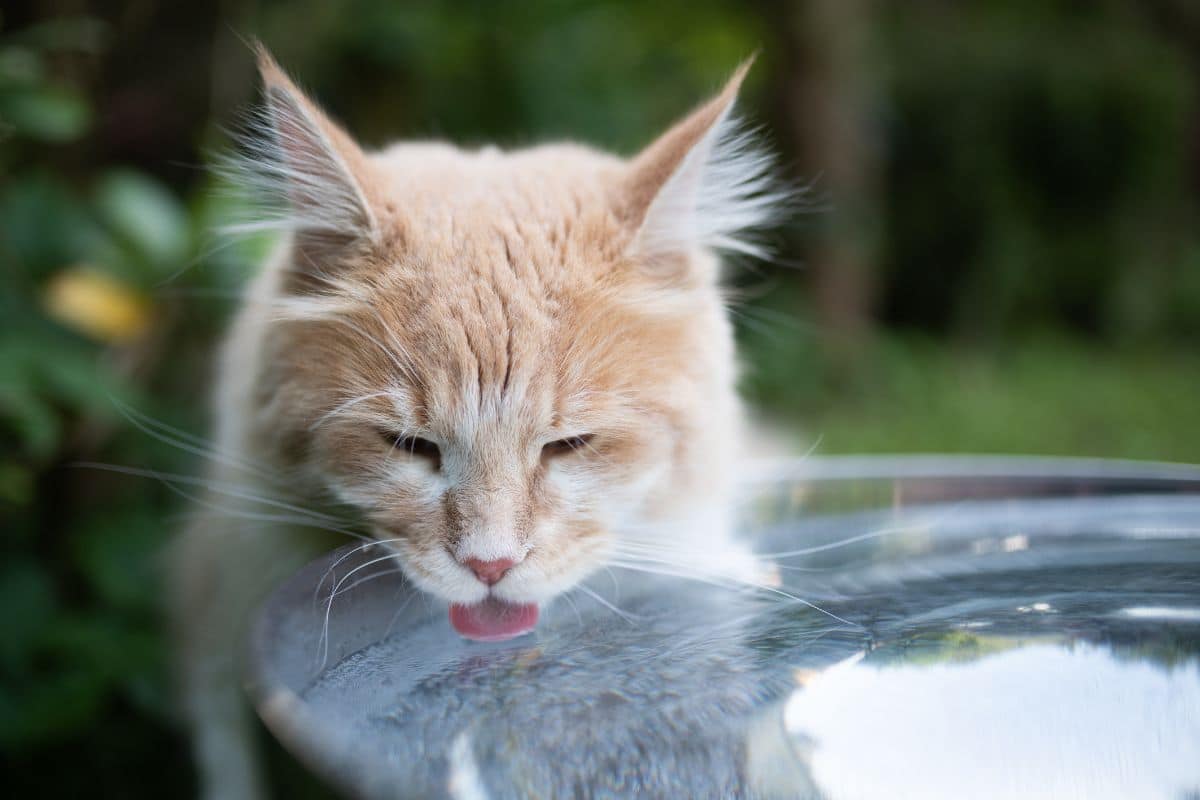
Unlike dogs, or other cat breeds, Maine Coons like things a certain way. They might meow because their water is too warm or there's a bunch of hair in it. Ensure you refresh their water at least twice a day and clean their water dish a few times a week.
If your Maine Coon is on a strict feeding schedule and it's not time to feed them, give them a light snack to tie them over until dinner. However, if you're a free-feeding type of owner, your cat may actually be bored with their food. Next time you go to the store, pick out a different food flavor. Just make sure it's the same brand.
3. Not Spayed or Neutered
Around six to eight months of age, cats reach sexual maturity. Female cats will meow or howl when they are in heat to let male cats know they are ready to mate. Whereas male cats will often spray to create a scent for female cats, letting them know it's time.
If your Maine Coon is especially chatty, consider their age. Are they sexually mature? If yes, then it's time to get them neutered or spayed. If you're unsure or got your Maine Coon for breeding, it's not recommended as there are many reasons why your cat should be fixed.
You should neuter or spay your Maine for population control, fewer health issues, and a friendlier cat. Not to mention, if your cat is fixed, it will stay close to home. An unfixed cat will search for a mate a few miles from home and may not be able to find its way back.
4. Meows to Go Outside or Come Inside
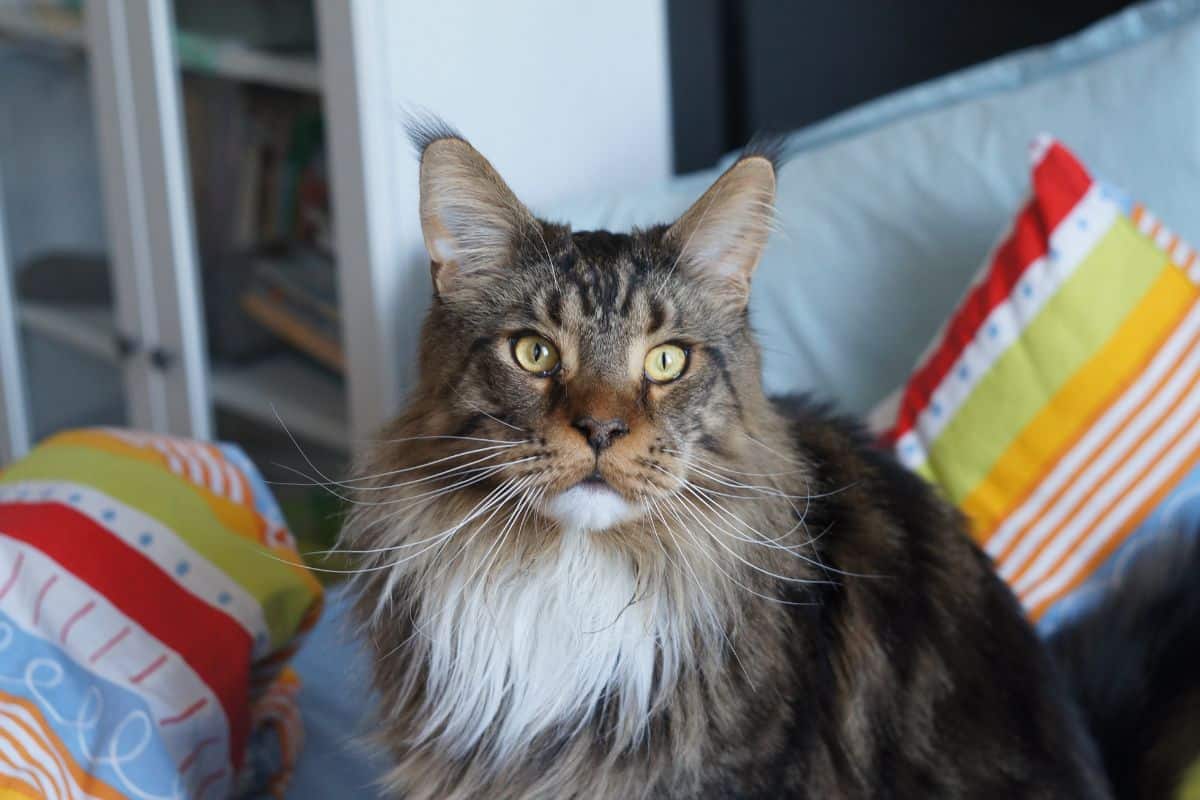
If your Maine Coon is inside and meows at the door, they'd like to go outside - and vice versa. However, if your Coon is an indoor-only cat and you notice they meow, paw or howl at the door, you can reverse this behavior by ensuring plenty of available areas to have him sit at a window.
Perhaps building or buying an enclosed outdoor pen may be sufficient. Maine Coons, like all cats, are curious adventurers and will always have the natural instinct to leave home to see what is out there.
Fulfill your cat's curiosity with plenty of stimulating toys and feeders. Help them get a taste of what the world is like so they'll be less curious about what's on the outside because they have the stimulation on the inside.
5. Asking for Treats
Due to a Maine Coon's size and growth rate, they need nourishing fulfillment to keep them happy. Offer treats that are high in protein and vitamins. Be careful, though. Feeding too many treats will make a cat obese quickly as they are susceptible to health issues caused by obesity, such as diabetes and liver disease.
6. Medical Issues
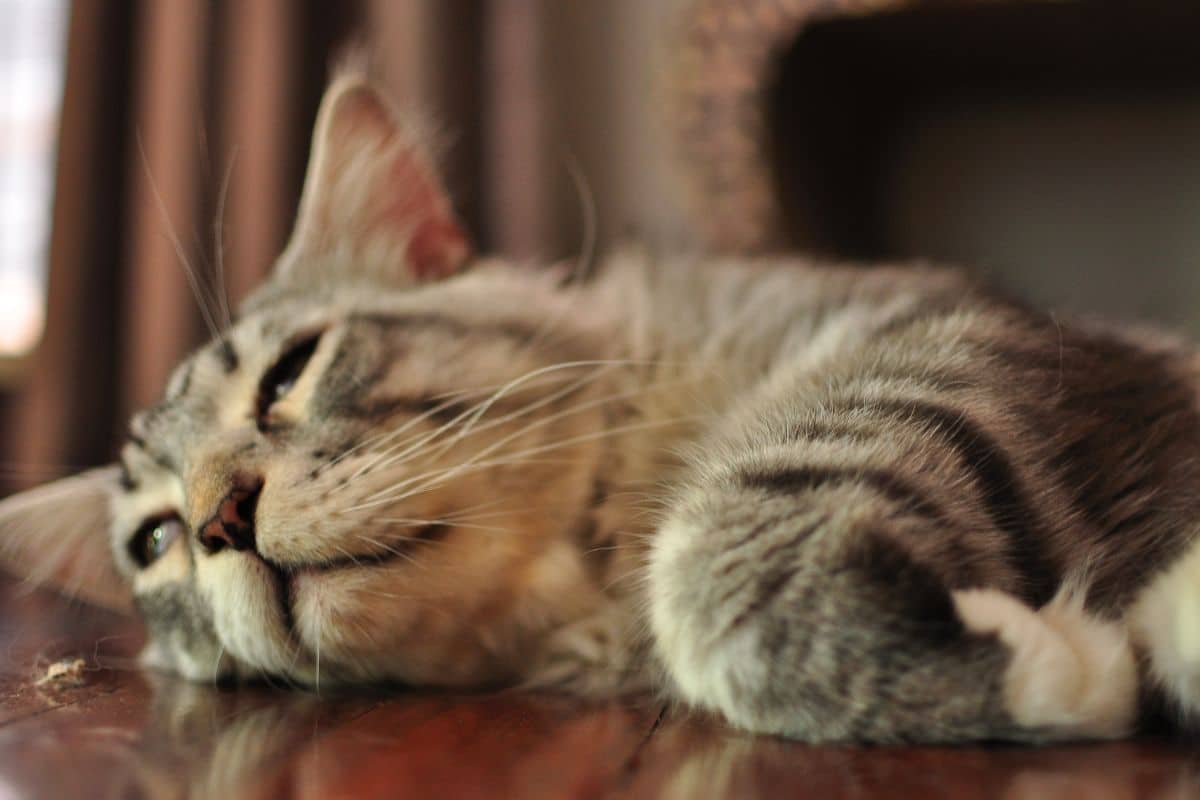
While most cats hide pain and stress well, it can be difficult to tell if anything is wrong. However, Maine Coons will often meow loudly or a combined group of chatters a few minutes apart if they are in pain.
Maine Coons have genetic health issues because of their large size and weight that may cause issues in old age, such as:
- Hip Dysplasia
- Hypertrophic Cardiomyopathy
- Spinal Muscular Atrophy
- Stomatitis
- Polycystic Kidney Disease
- Obesity
If you provide proper nutrition during the span of your Coons life and adequate exercise, there isn't much to worry about regarding health issues.
7. Stressed or Depressed
Maine Coons like stability and reassurance. Cats get stressed and depressed if there has been a change in routine or lifestyle. Signs of stress and depression include:
- Someone new moved in, such as someone they've never met or a new baby
- Moved to a new location
- Family arguments or constant tension
- Death in the family
- Furniture has been moved
Maine Coons are sensitive felines who like things a certain way. If there's a change in their schedule, even something as simple as a change in the diet, they'll make sure you know about it.
If there is a significant change in your life, they'll feed off your emotions and become depressed or stressed. Ensure you give your Maine tons of attention to help them transition.
8. Old Age
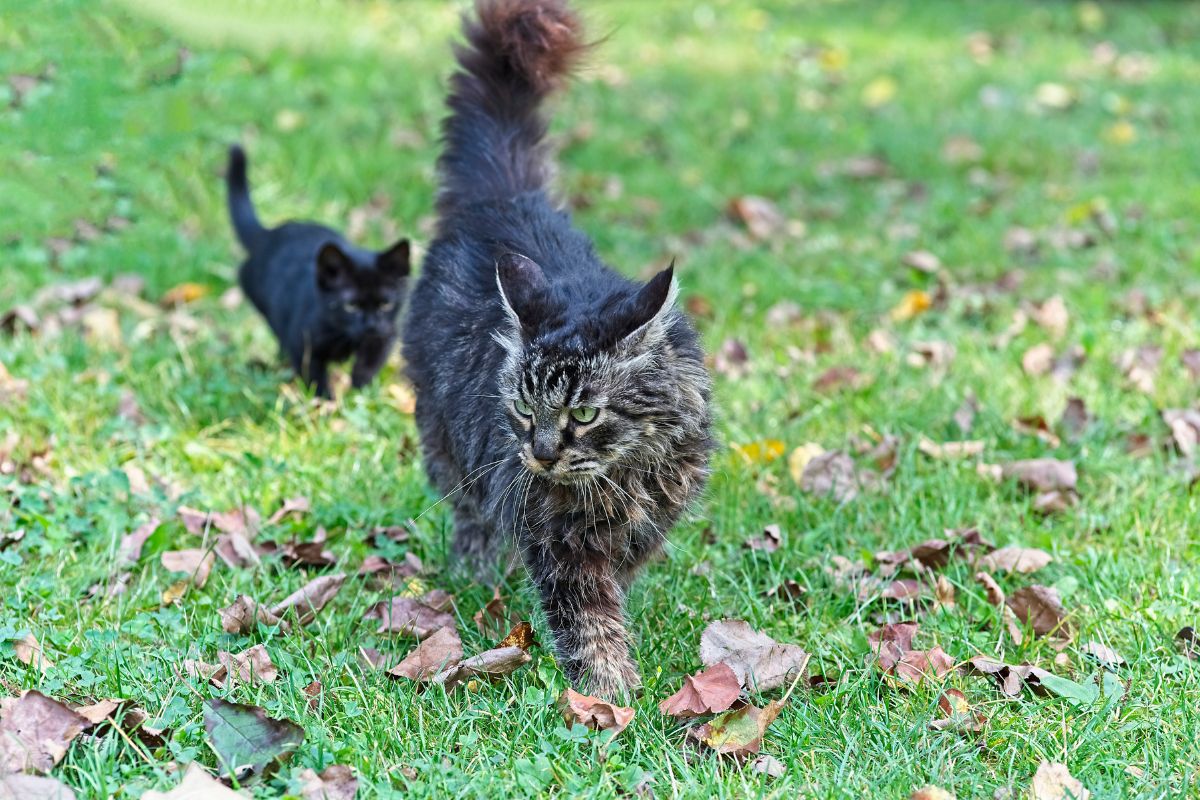
Old age brings many complications to your furever friend. Joints become stiffer, attitudes may change, and the overall behavior of your cat may be slower or just not quite themselves. Due to your Maine Coons excellent vocal skills, you may notice they growl more often, hiss at random things, or meow louder than before.
Maine Coons will often meow more as they reach old age to let you know their disorientation and confusion that things are changing and they just feel different. Watch their behavior and keep things as normal as you can without causing any more unnecessary stress through their older years.
9. Just Talking
Maine Coons are brilliant. So if they are an only 'child,' they'll learn behaviors from you. You talk to friends and vocalize your problems with others, so your cat will too. If you have gone over everything and your Maine is still meowing profusely, it may just be that they are feeling extra social.
Lean in and talk to them back. Give them a scratch in their favorite spot, and ensure you talk in a friendly yet conversational tone.
10. Needs or Wants Stimulation
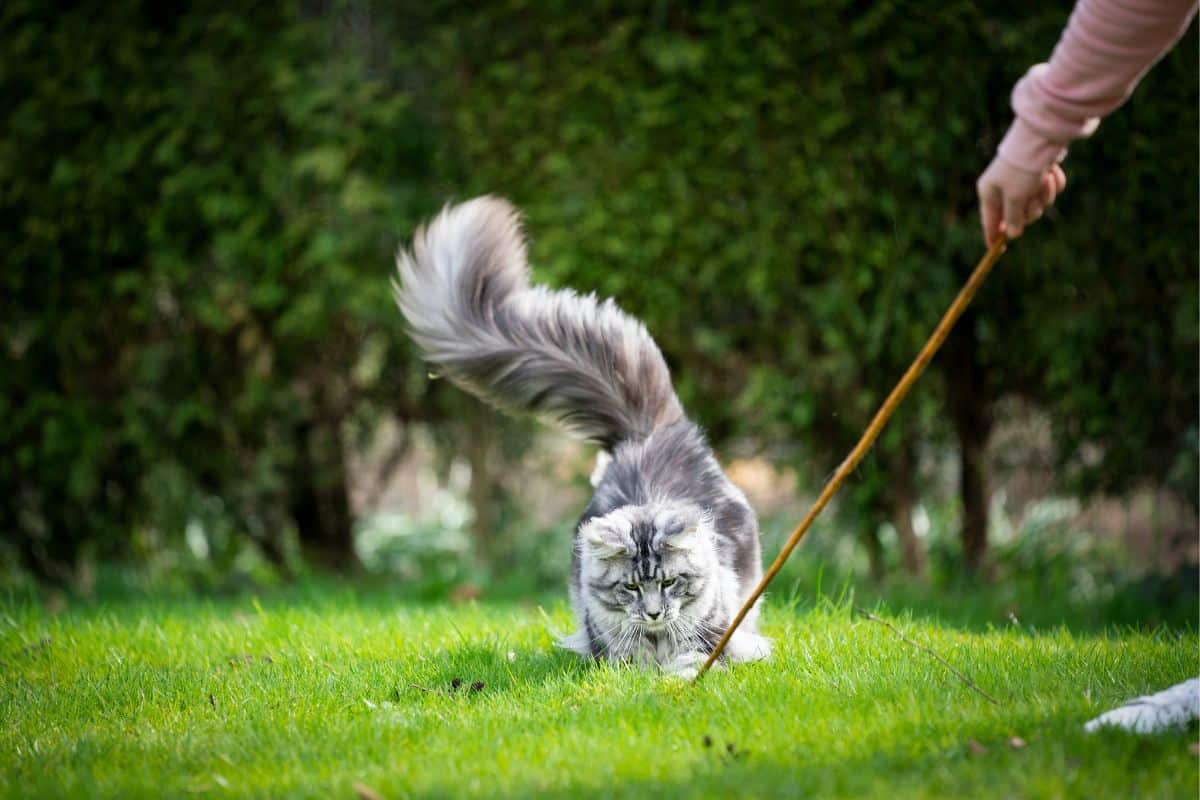
Due to the Maine Coons’ temperament and intelligence level, they need mental stimulation and constant distractions to feel the happiest. When your Coon starts meowing, try these items as a mental stimulation reward:
- Laser pointer
- Automated feather chaser
- Remote control mouse
- Peek-a-boo machine
- Treat dispensing treat toy
- Puzzle cat feeder
11. Trying to Warn or Tell You Something
Something is different. Something is off. You don't know what it is, but maybe your Coon does. If you notice strange behavior, such as needy meowing and pacing to get your attention, try following your feline friend and see if they lead you somewhere.
A Maine Coon’s meow could be as simple as "Hey, I brought you a mouse and wanted you to see." Or, it could be as dangerous as their playmate has gone missing, and they want to show you where they last saw them.
Conclusion
Maine Coons have different sounds for different reasons. It's up to you to configure which sound is which and for what.
Every cat is different, so their cries will sound similar but mean something entirely different for their specific needs.

